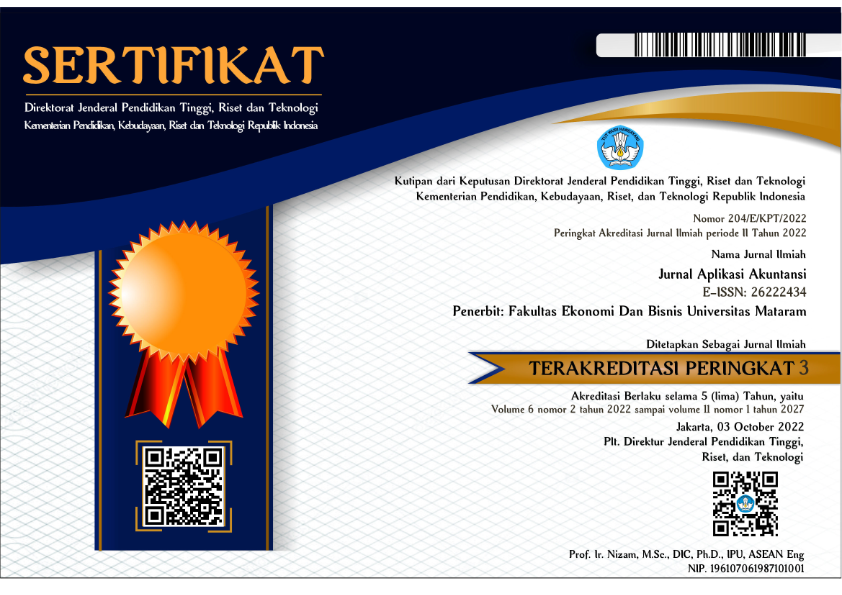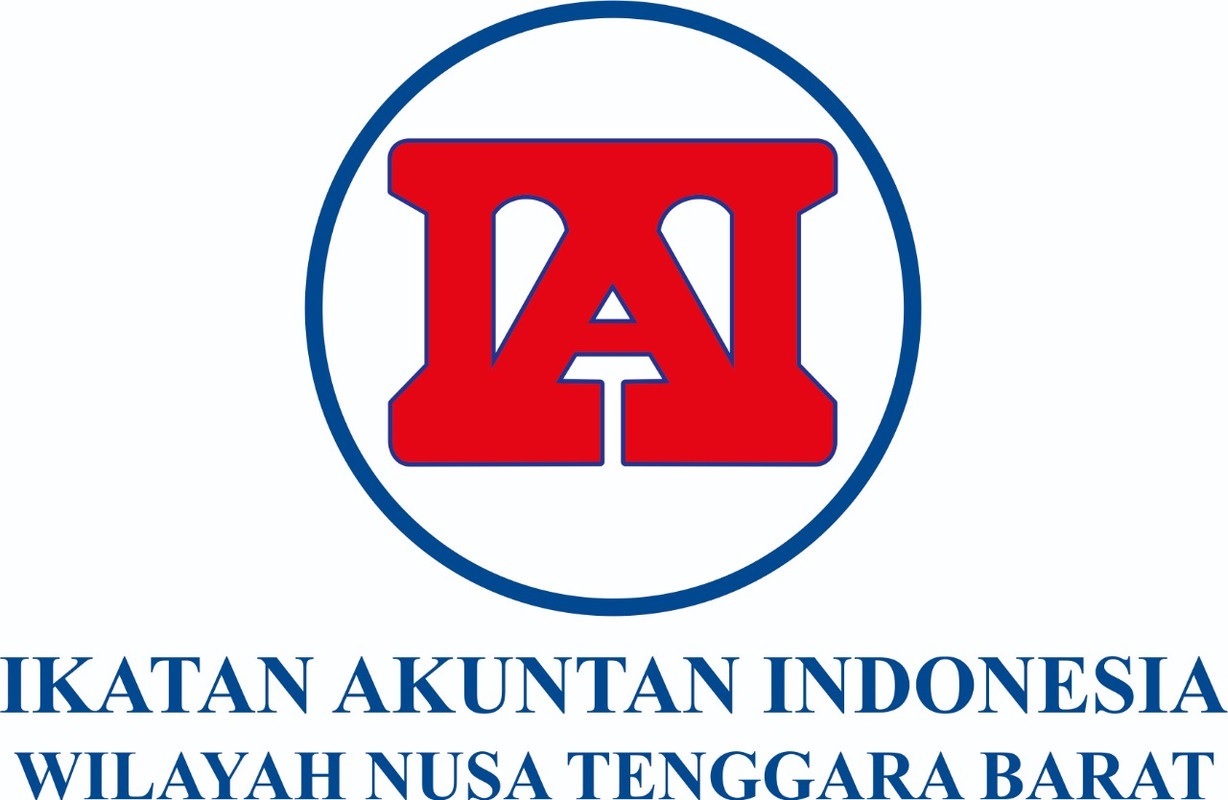IMPLEMENTING DIGITAL ACCOUNTING INFORMATION SYSTEMS TO ENHANCE FINANCIAL GOVERNANCE IN VILLAGE-OWNED ENTERPRISES (BUMDES): EVIDENCE FROM WEST LOMBOK, NTB
DOI:
https://doi.org/10.29303/jaa.v10i1.735Keywords:
Digitalization, Rapid Application Development, financial statements, financial management.Abstract
This study analyzes the implementation of digital accounting information systems to strengthen financial governance in Village-Owned Enterprises (BUMDes) in West Lombok Regency, Indonesia. The research explores user readiness, perceived usefulness, and ease of use in adopting digital financial systems using the Rapid Application Development (RAD) method integrated with the Technology Acceptance Model (TAM). A qualitative-descriptive approach was employed, combining pre-tests, post-tests, field observations, and in-depth interviews with BUMDes managers, village facilitators, and development advisors. The findings reveal that introducing digital accounting systems significantly improved financial reporting accuracy, transparency, and timeliness, particularly among BUMDes with proactive leadership and higher digital literacy. The TAM analysis confirms that perceived usefulness and ease of use strongly influence user acceptance and continued utilization of digital systems, while organizational support and training serve as critical mediating factors. The study demonstrates that digitalization enhances accountability and operational efficiency from a governance perspective, but sustainable transformation requires continuous human resource development through structured education and technical mentoring. Theoretically, this research contributes to extending the TAM framework within community-based financial institutions, illustrating the socio-technical nature of digital transformation in rural contexts. Practically, the results emphasize the need for integrated policy support, including standardized reporting templates, digital infrastructure provision, and incentive-based training for BUMDes managers. Future studies should adopt a longitudinal and mixed-method approach to evaluate long-term impacts and financial performance outcomes.
References
Aprillianto, B., Maharani, B., Sayekti, Y., Irmadariyani, R., Indah Purnamawati, I., & Sulistiyo, A. B. (2022). A Menuju Tata Kelola BUMDes Yang Baik Melalui Digitalisasi Dan Konsolidasi Laporan Keuangan. Jurnal Abdi Panca Marga, 3 (2), 55–60. https://doi.org/10.51747/abdipancamarga.v3i2.999.
Ishak, P., & Syam, F. (2020). Pengaruh kompetensi dan penggunaan teknologi informasi akuntansi terhadap kualitas laporan keuangan BUMDES. Journal of Technopreneurship on Economics and Business Review, 1 (2), 120–130. https://jtebr.unisan.ac.id/index.php/jtebr/article/view/45%0Ahttps://jtebr.unisan.ac.id/index.php/jtebr/article/download/45/12.
Lazuardi, Y. (2019). Pengaruh Penggunaan Sistem Informasi Akuntansi Terhadap Keberhasilan Usaha Kecil Menengah. Jurnal Ilmiah Akuntansi Peradaban, V (1), 197–209.
Munir, D. A., Mulyani, S., Akbar, B., & Yoseph, M. (2020). Effect of good village governance implementation in Indonesia. Utopia y Praxis Latinoamericana, 25 (Extra2), 233–243. https://doi.org/10.5281/zenodo.3809357
Pham, Q. H., & Vu, K. P. (2022). Digitalization in small and medium enterprise: a parsimonious model of digitalization of accounting information for sustainable innovation ecosystem value generation. Asia Pacific Journal of Innovation and Entrepreneurship, 16 (1), 2–37. https://doi.org/10.1108/apjie-02-2022-0013.
Satyawati, E., Lyna, & Cahjono, M. P. (2017). Development of Accounting Information System with Rapid Application Development (RAD) Method for Micro, Small, and Medium Scale Enterprises. Review of Integrative Business and Economics Research, 6 (1), 166–175.
Simanjuntak, O. S. (2015). Pengembangan Technology Acceptance Model (Tam) Sebagai Upaya Pemberdayaan Masyarakat Menuju Masyarakat Informasi. Telematika, 7 (1). https://doi.org/10.31315/telematika.v8i1.438.
Situmorang, D. M. (2020). Pelatihan Dan Penerapan Sistem Akuntansi Pada BUMDes Di Kabupaten Bengkayang. Cendekia : Jurnal Pengabdian Masyarakat, 2 (1), 58. https://doi.org/10.32503/cendekia.v2i1.953.
Sukriani, L., Dewi, P. E. D. M., & Wahyuni, M. A. (2018). Pengaruh Tingkat Pendidikan, Pengalaman Kerja, Pelatihan Dan Penggunaan Teknologi Informasi Terhadap Kualitas Laporan Keuangan. Jurnal Riset Ilmu Akuntansi, 9 (3), 85–97.
Undang-Undang Republik Indonesia Nomor 6 Tahun 2014.
Yanti, P. M. L. K., & Musmini, L. S. (2020). Menerapkan Sistem Informasi Akuntansi Dalam Meningkatkan Transparansi Pengelolaan Keuangan Pamsimas Pada BUMDes Giri Artha. Jurnal Akuntansi Profesi, 11 (1), 47–58.
Yuli Astuti, S., & Megasyara, I. (2023). Human Capital dan Tata Kelola Terhadap Tingkat Keberhasilan BUMDes Dengan Kinerja Keuangan Sebagai Variabel Mediasi. Owner, 7 (3), 1882–1890. https://doi.org/10.33395/owner.v7i3.1484
Downloads
Published
How to Cite
Issue
Section
License
Copyright (c) 2025 Eni Indriani, Rr. Sri Pancawati Martiningsih, Biana Adha Inapty

This work is licensed under a Creative Commons Attribution-ShareAlike 4.0 International License.









